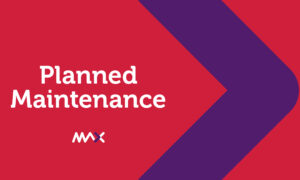Using Net Promoter Scores is a valuable way to collate customers’ feedback but it is how you use that feedback that matters, says MAX’s Head of Customer Insight, Kasia Witon-Wanstall.
In a service industry, the customer’s experience is vital. Seeking and encouraging feedback from your customers is an important way of checking in and ensuring your service is still relevant.
“You need to be asking your customers [for feedback] constantly,” says Kasia Witon-Wanstall, Head of Customer Insight at MAX. “Giving customers an opportunity to provide feedback is the most powerful thing you can do.”
However, according to Witon-Wanstall, the way in which you collect and use that feedback also plays a crucial role in how it can benefit your business.
“Some people make it hard for customers to complain. I don’t understand the point of that,” she says. “Complaints are an opportunity – it means someone is still giving you a chance to keep their business.”
For Witon-Wanstall, Net Promoter Scores – a system examining a customer’s loyalty to your business and their willingness to promote it to others, is a valuable tool in finding out what’s working and what isn’t.
“It taps into [the fact] that we, as humans, wouldn’t ever recommend or attach our name to something that wasn’t, in our opinion, good,” she says. “That frontline loyalty question gives us a firm point of where we stand with our collective customers, and then the ‘why’ gives us some indicators of areas we need to improve.”
Witon-Wanstall believes using Net Promoter Scores gives more weight, letting you know how many people feel that way and how strongly it makes them feel.
“What you say is going to influence the person that asked,” says Witon-Wanstall. “So, in a consumer space, we care about ratings and what you’re going to say and then we want to know why you’re going to say that.”
If a customer goes to the trouble of making a complaint on a website, the recipient of that feedback should be on high alert. However, it’s important to gain awareness of day-to-day issues that go unreported. Unless a customer’s experience was really terrible, they may simply forget, which doesn’t help your business.
“They’ll remember they don’t want to go back but they won’t remember why and that’s a problem,” says Witon-Wanstall. “Asking someone two months later won’t uncover these micro-moments.”
If a time-poor customer has to jump through hoops to complain or answer lengthy surveys, they will simply not bother.
“We talk about Net Promoter Scores and loyalty as the key indicators of what’s happening with customers and what they think of us,” remarks Witon-Wanstall. “It’s meant to help guide your business and identify areas to improve.”
Witon-Wanstall believes it’s also important to be specific about which part of your business requires feedback: “Ask the customers [specific questions about a part of the business] when they’re consuming that part of the business.”
Feedback has to be easy and non-confrontational for a customer, in order to provide you with valuable information. Without this information, it makes it increasingly difficult to satisfy customers and compete with other venues.
As Witon-Wanstall says, “What’s worse than bad feedback? No feedback!”




